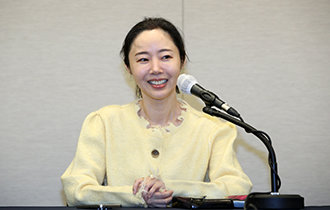Court rules in favor of the plan to increase med school quotas
Court rules in favor of the plan to increase med school quotas
Posted May. 17, 2024 08:02,
Updated May. 17, 2024 08:02
The Seoul High Court took the government's side in an appellate trial regarding an injunction filed by medical professionals to block the government from raising med school quotas. It ruled in favor of the government that argues that the policy prioritizes public health, dismissing the plaintiff’s claims that it lacks reasonable evidence for increasing enrollment by two thousand, and allocates the increased quotas randomly to schools based on poor field surveys of med schools. The court’s decision saves the government’s policy from the brink of being stranded and gives it momentum for now.
Although it was found during the court’s review that the policy in question proceeded in a poor manner, the court decided that it was not a matter of great severity that could put the brakes on the policy per se. Given this, the government and the medical community should end such a fierce face-off and work together to swiftly normalize the medical service system, which has caused serious inconveniences for patients over the past three months. They need to review the ER and ICU systems of training hospitals that have limped since their residents left in large numbers and facilitate the licensing process so that three thousand specialists are produced, as in other years. Considering that the college admission schedule begins with admissions for overseas residents in July, college admission programs are supposed to gain confirmation with new med school quotas applied until the end of this month. At the same time, it is urgent to improve teaching and training infrastructure systems to accommodate a larger number of students.
On the other hand, some are concerned that the court’s decision has made it much harder to see residents and med school students return to work and school. Associations of doctors and hardline med school professors have already signaled that they will reduce their office hours. The government intends to bring in overseas doctors to fill in the gap. However, it does not seem like a good idea to put aside local professionals equipped with the best techniques in the world and let foreign doctors take on their jobs even without a local medical license. As such, it takes doctors’ support and participation to fix errors in government policies and achieve medical reform to the fullest. The medical community must take social responsibility as a group of experts and specialists.
The ongoing healthcare crisis may have shown what could follow when the government implements policies in a poor manner. Although most of the public supports the idea of expanding medical school quotas, the government has started on the wrong foot, only fueling doctor’s opposition to the policy and losing momentum for reform. The government should look back at what went wrong and hold those in charge accountable. Nevertheless, it is fortunate that citizens have witnessed how the situation has developed and realized why medical reform matters. Taking this experience as an opportunity, the government should build the basis of governance that ensures mutual trust with the medical community to support essential fields and local medical systems and nurture healthcare industries based on a well-designed roadmap for medical reform.







